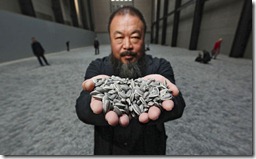Utah taps about 1 million acre-feet of Colorado River watershed water a year, with some of that piped to the urban Wasatch Front where nearly everyone in the state lives. Under an interstate compact, Utah has rights to another 400,000 acre-feet, though about half of that is reserved for the Ute and Navajo tribes. A planned pipeline from Lake Powell to St. George would bite into the remainder, as would population growth that’s expected to need another 40,000 acre-feet — each acre-foot being about what it takes to supply a family for a year. According to a U.S. Interior Department report, the Colorado River Basin likely will lose about 9 percent of its annual runoff by mid-century because of a warming climate, further squeezing Utah and its neighbors in a region that already expects to struggle getting water to its growing population. Bureau  of Reclamation scientists calculated likely regional temperature and precipitation models based on a range of possible carbon dioxide emissions, then used the mean of the results to predict an 8.5 percent reduction in water supply. The report actually predicts a 2.1 percent increase in precipitation for the Upper Colorado Basin — of which Utah is a part — but temperatures 5 to 7 degrees warmer than today’s are expected bring more rain than snow, and enough more evaporation to sap the supply. In the Lower Colorado Basin, precipitation is expected to decline 1.6 percent. "Water is the lifeblood of our communities, rural and urban economies and our environment," Interior Secretary Ken Salazar said in a statement, "and small changes in water supplies or the timing of precipitation can have a big impact on all of us." The report, a requirement of the Secure Water Act of 2009, projects wetter conditions in the Northwest and north-central United States, and further drying out in the Southwest. Even where moisture increases, winter rains — in place of snows — may decrease springtime and summer runoff for irrigation. The region’s smaller reservoirs may have to alter operations to keep water available late in the summer. But even in parts of the Interior West, where more rain falls in the future, the increased evaporation is likely to reduce river flows. Drink up.
of Reclamation scientists calculated likely regional temperature and precipitation models based on a range of possible carbon dioxide emissions, then used the mean of the results to predict an 8.5 percent reduction in water supply. The report actually predicts a 2.1 percent increase in precipitation for the Upper Colorado Basin — of which Utah is a part — but temperatures 5 to 7 degrees warmer than today’s are expected bring more rain than snow, and enough more evaporation to sap the supply. In the Lower Colorado Basin, precipitation is expected to decline 1.6 percent. "Water is the lifeblood of our communities, rural and urban economies and our environment," Interior Secretary Ken Salazar said in a statement, "and small changes in water supplies or the timing of precipitation can have a big impact on all of us." The report, a requirement of the Secure Water Act of 2009, projects wetter conditions in the Northwest and north-central United States, and further drying out in the Southwest. Even where moisture increases, winter rains — in place of snows — may decrease springtime and summer runoff for irrigation. The region’s smaller reservoirs may have to alter operations to keep water available late in the summer. But even in parts of the Interior West, where more rain falls in the future, the increased evaporation is likely to reduce river flows. Drink up.
April 25, 2011
April 20, 2011
From Salman Rushdie:
Last October the Chinese artist Ai Weiwei covered the floor [of the Tate Gallery] with his “Sunflower Seeds”: 100 million tiny porcelain objects, each handmade by a master craftsman, no two identical. The installation was a carpet of life, multitudinous, inexplicable and, in the best Surrealist sense, strange. The seeds were intended to be walked on, but further strangeness followed. It was discovered that when trampled they gave off a fine dust that could damage the lungs. These symbolic representations of life could, it appeared, be dangerous to the living. The exhibition was cordoned off and visitors had to walk carefully around the perimeter. Art can be dangerous. Very often artistic fame has proved dangerous to artists themselves. Mr. Ai’s work is not polemical — it tends towards the mysterious. But his immense prominence as an artist (he was a design consultant on the “bird’s nest” stadium for the Beijing Olympics and was recently ranked No. 13 in Art Review magazine’s list of the 100 most powerful figures in art) has  allowed him to take up human rights cases and to draw attention to China’s often inadequate responses to disasters (like the plight of the child victims of the 2008 earthquake in Sichuan Province or those afflicted by deadly apartment fires in Shanghai last November). The authorities have embarrassed and harassed him before, but now they have gone on a dangerous new offensive. On April 4, Mr. Ai was arrested by the Chinese authorities as he tried to board a plane to Hong Kong. His studio was raided and computers and other items were removed. Since then the regime has allowed hints of his “crimes” — tax evasion, pornography — to be published. These accusations are not credible to those who know him. It seems the regime, irritated by the outspokenness of its most celebrated art export, whose renown has protected him up to now, has decided to silence him in the most brutal fashion. The disappearance is made worse by reports that Mr. Ai has started to “confess.” His release is a matter of extreme urgency and the governments of the free world have a clear duty in this matter. Mr. Ai is not the only Chinese artist in dire straits. The great writer Liao Yiwu has been denied permission to travel to the United States to attend the PEN World Voices Festival of International Literature, which begins in New York on Monday, and there are fears that he could be the regime’s next target. Among the others are Ye Du, Teng Biao and Liu Xianbin — who was sentenced last month to prison for incitement to subversion, the same charge leveled against the Nobel Peace Prize laureate Liu Xiaobo, now serving an 11-year term. The lives of artists are more fragile than their creations. The poet Ovid was exiled by Augustus to a little hell-hole on the Black Sea called Tomis, but his poetry has outlasted the Roman Empire. Osip Mandelstam died in a Stalinist work camp, but his poetry has outlived the Soviet Union.
allowed him to take up human rights cases and to draw attention to China’s often inadequate responses to disasters (like the plight of the child victims of the 2008 earthquake in Sichuan Province or those afflicted by deadly apartment fires in Shanghai last November). The authorities have embarrassed and harassed him before, but now they have gone on a dangerous new offensive. On April 4, Mr. Ai was arrested by the Chinese authorities as he tried to board a plane to Hong Kong. His studio was raided and computers and other items were removed. Since then the regime has allowed hints of his “crimes” — tax evasion, pornography — to be published. These accusations are not credible to those who know him. It seems the regime, irritated by the outspokenness of its most celebrated art export, whose renown has protected him up to now, has decided to silence him in the most brutal fashion. The disappearance is made worse by reports that Mr. Ai has started to “confess.” His release is a matter of extreme urgency and the governments of the free world have a clear duty in this matter. Mr. Ai is not the only Chinese artist in dire straits. The great writer Liao Yiwu has been denied permission to travel to the United States to attend the PEN World Voices Festival of International Literature, which begins in New York on Monday, and there are fears that he could be the regime’s next target. Among the others are Ye Du, Teng Biao and Liu Xianbin — who was sentenced last month to prison for incitement to subversion, the same charge leveled against the Nobel Peace Prize laureate Liu Xiaobo, now serving an 11-year term. The lives of artists are more fragile than their creations. The poet Ovid was exiled by Augustus to a little hell-hole on the Black Sea called Tomis, but his poetry has outlasted the Roman Empire. Osip Mandelstam died in a Stalinist work camp, but his poetry has outlived the Soviet Union.  Federico García Lorca was killed by the thugs of Spain’s Generalissimo Francisco Franco, but his poetry has survived that tyrannical regime. We can perhaps bet on art to win over tyrants. It is the world’s artists, particularly those courageous enough to stand up against authoritarianism, for whom we need to be concerned, and for whose safety we must fight. Not all writers or artists seek or ably perform a public role, and those who do risk obloquy and derision, even in free societies. Susan Sontag, an outspoken commentator on the Bosnian conflict, was giggled at because she sometimes sounded as if she “owned” the subject of Sarajevo. Harold Pinter’s tirades against American foreign policy and his “Champagne socialism” were much derided. Günter Grass’s visibility as a public intellectual and scourge of Germany’s rulers led to a degree of schadenfreude when it came to light that he had concealed his brief service in the Waffen-SS as a conscript at the tail end of World War II. Gabriel García Márquez’s friendship with Fidel Castro, and Graham Greene’s chumminess with Panama’s Omar Torrijos, made them political targets. When artists venture into politics the risks to reputation and integrity are ever-present. But outside the free world, where criticism of power is at best difficult and at worst all but impossible, creative figures like Mr. Ai and his colleagues are often the only ones with the courage to speak truth against the lies of tyrants. We needed the samizdat truth-tellers to reveal the ugliness of the Soviet Union. Today the government of China has become the world’s greatest threat to freedom of speech, and so we need Ai Weiwei, Liao Yiwu and Liu Xiaobo.
Federico García Lorca was killed by the thugs of Spain’s Generalissimo Francisco Franco, but his poetry has survived that tyrannical regime. We can perhaps bet on art to win over tyrants. It is the world’s artists, particularly those courageous enough to stand up against authoritarianism, for whom we need to be concerned, and for whose safety we must fight. Not all writers or artists seek or ably perform a public role, and those who do risk obloquy and derision, even in free societies. Susan Sontag, an outspoken commentator on the Bosnian conflict, was giggled at because she sometimes sounded as if she “owned” the subject of Sarajevo. Harold Pinter’s tirades against American foreign policy and his “Champagne socialism” were much derided. Günter Grass’s visibility as a public intellectual and scourge of Germany’s rulers led to a degree of schadenfreude when it came to light that he had concealed his brief service in the Waffen-SS as a conscript at the tail end of World War II. Gabriel García Márquez’s friendship with Fidel Castro, and Graham Greene’s chumminess with Panama’s Omar Torrijos, made them political targets. When artists venture into politics the risks to reputation and integrity are ever-present. But outside the free world, where criticism of power is at best difficult and at worst all but impossible, creative figures like Mr. Ai and his colleagues are often the only ones with the courage to speak truth against the lies of tyrants. We needed the samizdat truth-tellers to reveal the ugliness of the Soviet Union. Today the government of China has become the world’s greatest threat to freedom of speech, and so we need Ai Weiwei, Liao Yiwu and Liu Xiaobo.
April 17, 2011
Six months after voters sent Republicans in large numbers to Congress and many statehouses, it is possible to see the full landscape of destruction that their policies would cause — much of which has already begun. If it was not clear before, it is obvious now that the party is fully engaged in a project to dismantle the foundations of the New Deal and the Great Society, and to liberate business and the rich from the inconveniences of oversight and taxes. At first it seemed that only a few freshmen and noisy followers of the Tea Party would support the new extremism. But on Friday, nearly unanimous House Republicans showed just how far their mainstream has been dragged to the right. 
 It would remove more than 100,000 low-income children from Head Start, and slash job-training programs for the unemployed desperate to learn new skills. And it would do all that while preserving the Bush tax cuts for the rich, and even expanding them. Regulation of business and the environment would be sharply reduced. The mania for blindly cutting has also spread to statehouses, many with new Republican governors and legislatures. Several states have cut their unemployment benefits below the standard 26 weeks. Gov. Jan Brewer of Arizona has proposed removing 138,000 people from Medicaid. Many recession-battered states, including some led by Democrats, have been forced to cut other services because Republicans have made it so politically difficult to raise taxes. Education, mental health and juvenile justice funds have been particular targets. In Wisconsin, Ohio, Indiana, Maine, and Florida, Republican governors have used the smokescreen of a poor economy to pursue a long-held conservative goal of destroying public and private unions. This has nothing to do with creating jobs even though that is the smoke screen they are using to justify it. Is this a great country, or what?
It would remove more than 100,000 low-income children from Head Start, and slash job-training programs for the unemployed desperate to learn new skills. And it would do all that while preserving the Bush tax cuts for the rich, and even expanding them. Regulation of business and the environment would be sharply reduced. The mania for blindly cutting has also spread to statehouses, many with new Republican governors and legislatures. Several states have cut their unemployment benefits below the standard 26 weeks. Gov. Jan Brewer of Arizona has proposed removing 138,000 people from Medicaid. Many recession-battered states, including some led by Democrats, have been forced to cut other services because Republicans have made it so politically difficult to raise taxes. Education, mental health and juvenile justice funds have been particular targets. In Wisconsin, Ohio, Indiana, Maine, and Florida, Republican governors have used the smokescreen of a poor economy to pursue a long-held conservative goal of destroying public and private unions. This has nothing to do with creating jobs even though that is the smoke screen they are using to justify it. Is this a great country, or what?
April 15, 2011
Using data from the U.S. Bureau of Labor Statistics, the AARP Public Policy Institute found that in March, older job-seekers had been out of work for an average of nearly 52 weeks, up from about 46 weeks in February.
The general employment shortage means seniors who left or lost their jobs probably won’t find another.
April 12, 2011
From Doree Ashcraft, of Logan, Utah:
The ads are effective and intriguing: attractive, energetic, articulate Mormons sharing what makes them so interestingly, so uniquely, and so memorably “a Mormon.” But these ubiquitous ads are also drastically misleading. Come to one of our meetinghouses on any given Sunday and you’d be hard-pressed to find a group of faithful like those represented in the “And I’m a Mormon” advertising blitz. Sadly, as a whole we are far less interesting than what the ads have masterfully conveyed. Generally speaking, we are collectively a boring people. We might try to mix it up — sometimes serving ethnic fare at our ward dinners or altering the tempo of a hymn, but for the most part, as a group, we are steadfast, obedient, charitable, fertile, and a bit dull. In a recent televised behind-the-scenes interview with one of the couples featured in the “I’m a Mormon” spots, the wife mentioned that one of the reasons she and her spouse were chosen to be in an ad was her husband’s penchant for growing unusual facial hair. Well, that’s nifty; I’m all for hairstyle freedom of expression. But imagine my confusion at hearing that this man’s facial hair was one reason he was chosen to be a global representative of my religion when the young men in my area are being told by local leadership that they must cut their hair to a short, conservative style or they can’t administer the sacrament or receive the Melchizedek priesthood. 
But a sale is a sale, and all sales are final. I wonder what spirit motivates such a deception. Spirit of Truth?
April 11, 2011
The federal government survived the hostage crisis created by House Republicans, but emerged staggering from the deal struck Friday night. The compromises were damaging, the amount of money cut from a sickly economy was severe, and the image of Washington as a back-alley dog fighting garage will not soon fade. The Republicans set the terms of the debate at every point, and learned that they can push the fumbling and fearful Democrats far to the right. Within hours, they began revving up to create the next crisis. Although much of the final deal has not yet been made public, it is clear it could have been far worse. The White House refused to accept many of the most radical cuts in the original House bill, including deep reductions to Head Start, AmeriCorps, Pell grants, public broadcasting and competitive education programs. Financial and health care reform will continue but with reduced money. The worst right-wing demands were dropped, including a cutoff of funds to providers of abortion and family planning, and an end to regulation of greenhouse gases. And nearly half the cuts came from a side of the budget that will do less harm to the economy and the most vulnerable. Nonetheless, the Republicans did far better than they could possibly have imagined when the process began, winning $38.5 billion in cuts, more than even the House leadership had proposed. 
April 8, 2011
If the federal government shuts down at midnight tonight — which seems likely unless negotiations take a sudden turn toward rationality — it will not be because of disagreements over spending. It will be because Republicans are refusing to budge on these ideological demands:
• No federal financing for Planned Parenthood because it performs abortions. Instead, state administration of federal family planning funds, which means that Republican governors and legislatures will not spend them.
• No local financing for abortion services in the District of Columbia.
• No foreign aid to countries that might use the money for abortion or family planning. And no aid to the United Nations Population Fund, which supports family-planning services.
• No regulation of greenhouse gases by the Environmental Protection Agency.
• No funds for health care reform or the new consumer protection bureau established in the wake of the financial collapse.
 Abortion. Environmental protection. Health care. Nothing to do with jobs or the economy; instead, all the late greatest hits of the Republican Party and the right-wing radicals who control it, only this time it has the power to wreak national havoc: furloughing 800,000 federal workers, suspending paychecks for soldiers and punishing millions of Americans who will have to wait for tax refunds, Social Security applications, small-business loans, and even most city services in Washington. The damage to a brittle economy will be substantial. Democrats have already gone much too far in giving in to the House demands for spending cuts. The $33 billion that they have agreed to cut will pull an enormous amount of money from the economy at exactly the wrong time, and will damage dozens of vital programs. But it turns out that all those excessive cuts they volunteered were worth far less to the Republicans than the policy riders that are the real holdup to a deal. After President Obama appeared on television late Wednesday night to urge the two sides to keep talking, negotiators say, the issue of the spending cuts barely even came up. All the talk was about the abortion demands and the other issues. Democrats in the White House and the Senate say they will not give in to this policy extortion. Let’s hope they don’t weaken. These issues have no place in a stopgap spending bill a few minutes from midnight. A measure to prohibit the Environmental Protection Agency from regulating greenhouse gas emissions came up for a Senate vote on Wednesday and failed. If Republicans want to have yet another legislative debate about abortion and family planning, let them try to pass a separate bill containing their restrictions. But that bill would fail, too, and they know it, so they have chosen extortion. The lack of seriousness in the House is reflected in the taunting bill it passed on Thursday to keep the government open for another week at an absurdly high cost of $12 billion in cuts and the ban on District of Columbia abortion financing. The Senate and the White House said it was a nonstarter. Many of the same House members who earlier had said they would refuse to approve another short-term spending bill voted for this one, clearly hoping they could use its inevitable failure in the Senate to blame the Democrats for the shutdown. What could be more cynical, except perhaps the Utah legislature? I hope people are not fooled by what the Republicans, pushed by Tea Party members, were really holding out for, though they fell for it when they elected these fools. Things are really bad.
Abortion. Environmental protection. Health care. Nothing to do with jobs or the economy; instead, all the late greatest hits of the Republican Party and the right-wing radicals who control it, only this time it has the power to wreak national havoc: furloughing 800,000 federal workers, suspending paychecks for soldiers and punishing millions of Americans who will have to wait for tax refunds, Social Security applications, small-business loans, and even most city services in Washington. The damage to a brittle economy will be substantial. Democrats have already gone much too far in giving in to the House demands for spending cuts. The $33 billion that they have agreed to cut will pull an enormous amount of money from the economy at exactly the wrong time, and will damage dozens of vital programs. But it turns out that all those excessive cuts they volunteered were worth far less to the Republicans than the policy riders that are the real holdup to a deal. After President Obama appeared on television late Wednesday night to urge the two sides to keep talking, negotiators say, the issue of the spending cuts barely even came up. All the talk was about the abortion demands and the other issues. Democrats in the White House and the Senate say they will not give in to this policy extortion. Let’s hope they don’t weaken. These issues have no place in a stopgap spending bill a few minutes from midnight. A measure to prohibit the Environmental Protection Agency from regulating greenhouse gas emissions came up for a Senate vote on Wednesday and failed. If Republicans want to have yet another legislative debate about abortion and family planning, let them try to pass a separate bill containing their restrictions. But that bill would fail, too, and they know it, so they have chosen extortion. The lack of seriousness in the House is reflected in the taunting bill it passed on Thursday to keep the government open for another week at an absurdly high cost of $12 billion in cuts and the ban on District of Columbia abortion financing. The Senate and the White House said it was a nonstarter. Many of the same House members who earlier had said they would refuse to approve another short-term spending bill voted for this one, clearly hoping they could use its inevitable failure in the Senate to blame the Democrats for the shutdown. What could be more cynical, except perhaps the Utah legislature? I hope people are not fooled by what the Republicans, pushed by Tea Party members, were really holding out for, though they fell for it when they elected these fools. Things are really bad.
April 6, 2011
Mormon History Association Conference
St. George, Utah May 25-29, 2011
Session 6D. Women and Families in Southern Utah
Chair: Linda Thatcher, Salt Lake City, UT
“‘Determined to Make a Success of It’: Ann Cannon Woodbury and Dixie’s Silkworm Industry”
Kim Woodbury, Bountiful, Utah
“‘It Was Awful in Its Majesty’: Mary Ann Freeze’s 1892 Mission to the San Juan Stake”
Robin Russell, Salt Lake City, UT
“Erastus Snow’s Life and Families from their Personal Letters”
Donald R. Snow and Diane M. Snow, Brigham Young University
Commentator: Lisa Tait, Brigham Young University, Provo, UT
Really looking forward to it. Wish it weren’t the last session on the last day, though. Oh well.
April 5, 2011
Young Gavin Russell has joined a long line of Russell Cowboys:
His father:
His grandfather:
And his great grandfather (on the left):
Yippee-kai-yay.
April 1, 2011
The U.S. added 216,000 jobs in March causing the unemployment rate to fall to 8.8%. That is a very modest recovery. The unemployment rate was 8.9 percent in February. Overall, the number of jobs created last month was greater than the forecast of 193,000. I’ve noticed that the fast food places are fully employed. The number follows the decline in the weekly unemployment claims, which have fallen steadily, from the mid-400,000s to the neighborhood of 385,000. Even so, the latter is a grim number indeed. But in this slowest and most sluggish of recoveries, it is a sign of somewhat fewer layoffs. Still, threats to a more robust recovery remain, including a surge in energy and food prices, with the possibility of disruptions in oil production in the Middle East continuing to weigh on the financial markets. State and local governments have also been shedding jobs as they grapple with budget woes. I wish it were an April fool.









